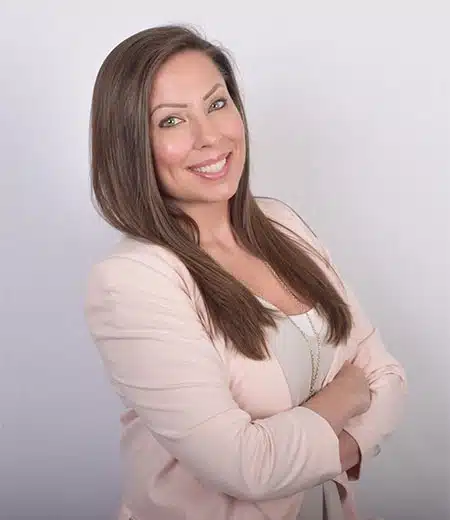
Real estate brokerages Toronto can certainly vary from office to office and REALTOR® to REALTOR®.
If you recently obtained your real estate license and you’re looking into real estate brokerages in Toronto, you’re probably wondering where to start and what you should be looking for.
When I was participating in Humber’s SIM’s courses, I remember the instructors suggested interviewing with just 3-4 brokerages. I met with 6-7 and explored joining as a solo agent and a team. In addition to these considerations, I also wanted to better understand what real estate brokerages in Toronto were prepared to offer when it came to training, support, marketing, and more along with their fees.
When I first got my license, I knew I wouldn’t be able to start working in the field for a little while. I was in the midst of trying to sell my business and I also had a young child at home. As such, one of the big factors for me early on was the fees. I knew I didn’t want to be spending considerably high monthly fees when I wouldn’t actively be able to use my license for at least 6-8 months.
For the average person starting out however, this is not likely the case. So, here are some of the things that I’d suggest you try to understand when you’re interviewing.
BROKERAGE FEES
As noted above, I didn’t want to be spending a lot of money in high monthly fees since I couldn’t be actively working as a REALTOR® right away. The brokerage that I initially selected charged much lower fees compared to some of the larger “franchise” style brokerages and they were charged annually, not monthly. As such, I didn’t have to pay my dues until a year after I joined, which was helpful in light of my personal circumstances.
The trade-off, at least to some extent, is that the commission splits were higher than the other brokerages I met with, at least until you reach a certain level of gross commission. Most real estate brokerages in Toronto tend to range from as low as a flat rate per deal to splits with a very wide range. The brokerage I joined started off at had a higher split until you hit a specific amount of gross commission so while yes, the annual fees were lower, you’d make up the difference and then some, once you started transacting.
In addition to the commission splits, you want to have a very crystal-clear understanding of what the commission cap is. In some cases, as an example, this could be something like 80/20 until you’ve hit $25,000 in gross commission that is paid to the brokerage. That means you’d have to bring in a total of $125,000 in commission (I.e. you’d have to sell 5 properties around $1,000,000 each to hit this amount, on averge). This may not seem like a lot but statistically, the average REALTOR® only sells 3 homes a year – and if you’re in your first year, you can expect to experience a learning curve along with some time required to build your database of clientele.
One of the biggest and most well-known brokerages I met had no cap, which meant you’d be spending a relatively high monthly fee and split your commission 80/20 indefinitely – or until you reached such a high volume you could shift to a 95/5 split, but this would result in more than double the monthly fees.
A couple of other brokerage I met with had caps ranging from $16,000-$18,000. One had none and just charged a fee of $800 per transaction. It amazed me just how much real estate brokerages in Toronto were so different.
Due to the Competition Act, of course, I can’t go into more specifics about which brokerage in Toronto charges what; that is something that you’ll need to explore for yourself. I’m merely sharing these generalities so you can get a sense of what you may be able to expect.
SUPPORT
An important point to consider with the fees is the type of support you can expect to receive. The true value of a REALTOR®’s time can range from $300-$500/hr +/-, especially if they use their time wisely. The brokerage I selected offered extremely robust support when it came to administration (writing up offers, broker loading listings etc.) to advertising.
Since I ran my own business for close to 20 years, I am a pretty hands-on kind of person. Although I could lean on admin for various support, I wanted to understand how to do things myself and ended up handling most of my paperwork on my own so I could get it completed and sent off for signature more quickly. I did however, take full advantage of the advertising support that was available. They created a polished and professional listing presentation, my mail outs and feature sheets for my listings. It was nice to know this was in house and they worked quickly to turn around what I needed.
As I’ve come to understand it, most real estate brokerages in Toronto do not provide this kind of in-house support. Some have templates available for you to use, but in most cases you’ll need to hire a designer and find a printer for an ad hoc work that you need done. Even in the case of some brokerages with the highest splits and the highest fees didn’t offer this kind of support..jpg)
If you’ve gone through the program to obtain your real estate license, then of course you have a general idea of what needs to happen. What I found however was that Humber’s program taught you more about what needs to happen and not necessarily how. There are lots of tools on the back end of the TRREB site that you need to learn how to use so you can complete your work accurately and efficiently. Unless you’re willing to sit down with admin in the office, most brokerages I spoke with didn’t proactively provide any of this support or training.
In fact, in order to level up on the knowledge I needed, I was fortunate to connect with a seasoned REALTOR® who spent a couple of hours on zoom with me, showing me all of the tips and tricks that you simply learn over time. I also had a client ask me how to post something on her listing a certain way and literally couldn’t find the answer anywhere. I contacted TRREB a few times along with my brokerage and several other REALTOR®s. Nobody had the answer and even the TRREB manual skips over this information. My client asked a REALTOR® friend of hers and we finally got the answer we were looking for.
When I realized there were so many gaps between the training that my program offered and what the brokerage covered, I started developing my own playbook to detail anything I’d come across as a stumbling block. It’s become an extremely valuable resource for me and serves as a great reference guide if I need a refresher.
When I was interviewing with real estate brokerages in Toronto, I asked about the training that was offered and it totally varied. The brokerage I selected explained that they offered 12 weeks of training, and while this is true, it turned out to be a series of videos from well known real estate experts that cycle on repeat every few months. Since there are so many tools out there for REALTOR®’s to learn, from digital marketing and social media to lead gen and so much more, I was surprised that there weren’t other training sessions held to cover some of these areas as well.
Looking back, I think I made the best decision that I could based on what I was told. If I could do it over again however, I would ask the real estate brokerage in Toronto that I was speaking to if I could sit in on one of their training sessions to get a better sense of what they were really offering rather than just going based on what I was told..jpg)
The biggest challenge I think most new REALTOR®’s face early on in their careers is a lack of mentorship. This can really make or break someone if they don’t have a mentor or manager they feel they can talk to, ask questions and get appropriate support.
When I was running my own business, I had at least 5-6 business coaches and mentors, all of which helped tremendously in their own ways so I can testify to this first hand.
As a REALTOR®, when you’re interviewing with real estate brokerages in Toronto, it’s important to understand if mentorship is part of their culture. Is there any motivation for seasoned REALTOR®’s to take newer REALTOR®’s under their wing? Is this encouraged? Does the brokerage actively try to help new REALTOR®’s find someone to mentor with?
I remember when I asked, I was simply told it wasn’t possible because of covid. I still made some of my own relationships and found a few people I could learn from, but it wasn’t necessarily “offered” in any way.
SOLO VS. TEAM
If you’re new to the industry, you may be trying to decide if moving ahead as a solo agent or on a team is the right choice for you.
Although I had a couple of decades of business experience behind me, I knew I’d still have to work hard to establish myself in a new industry. As such, I was really attracted to the idea of a team, as I thought that would help secure clients. In addition, I got the impression that one of the primary reasons any REALTOR® would join a team was to spend more time servicing clients than trying to drum up leads. What I found by talking to various real estate brokerages in Toronto, along with a couple in Durham, was that most teams still require their REALTOR®’s to be prospecting heavily.
With that said, I couldn’t understand why a REALTOR® would necessarily want to join a team since there would be considerable splits not only with the brokerage but also with the team. Just like real estate brokerages and their offerings, what the teams offer completely varies. For those that I spoke to, only one didn’t depend on their team members to be prospecting. They spent so much money on digital marketing, that you would truly be servicing clients only.
The other consideration I wanted to evaluate between being a solo REALTOR® vs. working on a team was the commitment of time. Since I still had a very young child at home, I was concerned about the commitment of time that some team’s would expect. I came out of the Humber program during a time when open houses weren’t permitted due to the pandemic, but most of the team’s indicated that hosting open houses would be required just about every weekend once they went back. Of course, this is part of the job, but I just couldn’t see myself hosting them EVERY weekend. I couldn’t see myself doing this every single weekend with a little one at home. It wouldn’t be fair to her – or to me.
That may mean that as a newer REALTOR®, I have to work a little harder to re-establish myself and figure out the best source for my leads, but at least I’m working on my own time.
As noted earlier in my article, I mentioned how surprised I was to see how different some real estate brokerage in Toronto were – from fees and support to training and mentorship. This said, as different as some of them were, they were also still very much the same, in the sense that you’re an independent contractor and it’s mostly up to you to make your own way.
Of all the real estate brokerages in Toronto, there was really only one that I came across, and only very recently, that stood out with some extremely different offerings – and that is eXp Realty of Canada Inc. Brokerage. When I was interviewing with brokerages back at the beginning of 2021, they weren’t really on my radar. I’m not sure why.
As my time has opened up to commit more fully to my new career, I decided to reflect on what I really wanted in a brokerage and what would be the best fit for me long term. I met with a total of 6 brokerages from 3 organizations (yes, 3 from one, 2 from another and 1 stand alone independent). Since I really didn’t have any prior knowledge of eXp when I set up these meetings, I was literally BLOWN AWAY by what I learned.
After re-evaluation my options, it was a complete no brainer that out of all the real estate brokerages in Toronto, I really had to move over to eXp. I’m not going to say this was an easy decision, in the sense that I met some REALLY amazing people at each of the brokerages I spoke to, but there are just too many great things that eXp offers that I simply couldn’t ignore. I am extremely excited about this move and can’t wait to see where this new path will take me.
If you’re new to the real estate industry or if you’re considering a change, I hope you’ve found some of this information to be helpful. No matter what you decide to do and where you decide to go, make sure you’re prepared with a solid list of open-ended questions and try to participate in meetings and/or training sessions to get a better sense of the brokerage’s culture and offerings. It’s also a good idea to connect with other REALTOR®’s at the various brokerages to get their feedback and input.
I would also have to suggest that if you’re only going to meet with a narrow list of 3-4 brokerages, that eXp should be one of them. I’m sure you’d be just as blown away as I was by what they have to offer compared to most of the other real estate brokerage in Toronto.
If you have any questions, I’m happy to share more. I can be reached at 647.896.6585 or info@serenaholmesrealtor.com. You can also fill out this contact form.
Interested in other great information? For plenty of other great tips, make sure we’re connected on social @serenaholmesrealtor and you’re subscribed to my YouTube page.











